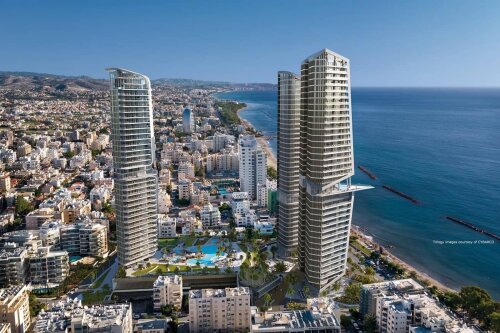Best Public-Private Partnerships (PPP) Lawyers in Nicosia
Share your needs with us, get contacted by law firms.
Free. Takes 2 min.
List of the best lawyers in Nicosia, Cyprus
About Public-Private Partnerships (PPP) Law in Nicosia, Cyprus
Public-Private Partnerships, commonly referred to as PPP, are collaborative arrangements between government entities and private sector companies. In Nicosia, Cyprus, PPP initiatives are used to deliver public infrastructure projects and services, such as schools, hospitals, highways, and utilities. These partnerships are structured to leverage private sector expertise, investment, and efficiency, ultimately aiming to benefit the public by improving infrastructure, reducing costs, and spreading project risks.
PPP projects in Cyprus can take various forms, including concession agreements, build-operate-transfer (BOT) contracts, and service contracts. The structure and specifics of each project typically depend on the public need, investment requirements, financing model, and operational considerations.
Why You May Need a Lawyer
Public-Private Partnerships involve complex legal, financial, and regulatory frameworks. Engaging a lawyer experienced in PPP matters in Nicosia may be essential in several scenarios:
- You are a private entity seeking to participate in a government project tendered under a PPP model
- You represent a public authority tasked with structuring, negotiating, or managing a PPP contract
- You need to understand compliance, risk allocation, or dispute resolution mechanisms in PPP agreements
- You face documentary, contractual, or regulatory issues relating to the execution or operation of a PPP
- You require negotiation or advice on financing, guarantees, or performance bonds for PPP projects
- You are entering a joint venture or consortium arrangement to participate in a PPP
Legal professionals play a crucial role in ensuring due diligence, regulatory adherence, contractual clarity, risk mitigation, and the successful implementation of PPP projects.
Local Laws Overview
In Cyprus, the framework governing Public-Private Partnerships is based on both domestic legislation and EU directives. Key aspects particularly relevant in Nicosia include:
- Public Procurement Law - PPP projects are subject to public procurement rules, ensuring transparency, competition, and compliance with EU directives (notably Directives 2014/24/EU and 2014/25/EU on public procurement and concessions)
- Concessions and Contract Law - PPP agreements must comply with Cyprus contract law, establishing clear terms for risk allocation, payment mechanisms, and termination conditions
- Project Structure and Approval - PPP projects often require multi-level regulatory approvals, including from line ministries, local government authorities, and sometimes the Council of Ministers
- Financing and Security Instruments - Private entities typically seek project finance based on security interests, with legal rules around asset ownership, liens, and guarantees applying
- Dispute Resolution - In the event of contractual disagreements, Cypriot law provides mechanisms for dispute resolution, often incorporating arbitration clauses
- Environmental, Planning, and Licensing - Projects must adhere to environmental laws, obtain permits, and satisfy planning regulations at national and municipal levels, particularly in Nicosia
Legal advice is essential to successfully navigate the regulatory landscape and structure PPP contracts in compliance with both Cypriot and EU law.
Frequently Asked Questions
What is a Public-Private Partnership in Cyprus?
A Public-Private Partnership in Cyprus is a formal agreement between a government body and a private entity for the design, construction, financing, and operation of public assets or services, usually for a specified term.
Who can participate in PPP projects in Nicosia?
Generally, private companies, consortia, and occasionally non-profit organizations can take part in PPPs, subject to meeting eligibility and qualification criteria outlined in the relevant tender documents.
How are PPP projects awarded in Nicosia?
PPP projects are typically awarded through competitive public procurement procedures, which may include pre-qualification, request for proposals, and negotiation rounds to ensure transparency and value for money.
What are the common types of PPP contracts?
The most common PPP models in Cyprus include build-operate-transfer (BOT), concession agreements, design-build-finance-operate (DBFO), and management contracts, among others.
What risks are typically allocated to the private partner?
Private partners are often responsible for risks associated with financing, construction, operation, and sometimes demand risk, depending on the contract terms.
How are disputes in PPP projects resolved?
Most PPP contracts in Cyprus provide for dispute resolution through negotiation, mediation, or arbitration. Courts may also have jurisdiction, depending on the agreement.
Do PPP projects require environmental and planning approvals?
Yes, all PPP projects must comply with local and national environmental laws, obtain necessary permits, and pass planning approvals, especially when located in urban settings like Nicosia.
How long do PPP projects usually last?
The duration of PPPs varies by project type, but most last between 10 and 30 years, allowing the private party to recoup its investment and earn a reasonable return.
Can foreign companies bid for PPP projects in Cyprus?
Yes, Cyprus follows EU public procurement rules, allowing European and, in some cases, international firms to participate in PPP tenders if they meet the requirements.
What happens at the end of a PPP contract?
At the end of the contractual term, the asset or service is usually handed back to the public authority, often subject to conditions on quality and maintenance.
Additional Resources
If you are seeking more information on Public-Private Partnerships in Nicosia, the following resources and organizations may be helpful:
- Cyprus Ministry of Finance - Unit responsible for public investments and PPP frameworks
- Tenders Electronic Daily (TED) - For EU public procurement notices, including PPPs involving Cyprus
- Cyprus Bar Association - For finding legal professionals with PPP expertise
- Chamber of Commerce and Industry - For business partnerships and investment-related PPP resources
- Competition Protection Commission - For issues concerning antitrust and competition in PPP procurement
- Local Municipality of Nicosia - For planning, zoning, and local regulatory requirements
Next Steps
If you require legal guidance regarding a Public-Private Partnership in Nicosia, it is advisable to consult with a Cypriot lawyer experienced in PPP and infrastructure law. Here are suggested steps:
- Identify your specific needs - whether as a public official, private investor, or adviser
- Gather all relevant documents, tender notices, project descriptions, and correspondence
- Schedule a confidential consultation with a local law firm or practitioner
- Discuss your objectives, risks, and any concerns with your legal adviser
- Clarify fee structures, timelines, and expected outcomes before proceeding
- Maintain open communication throughout the project to address arising legal issues promptly
Timely legal advice helps prevent costly mistakes, ensures regulatory compliance, and increases the likelihood of a successful Public-Private Partnership in Nicosia, Cyprus.
Lawzana helps you find the best lawyers and law firms in Nicosia through a curated and pre-screened list of qualified legal professionals. Our platform offers rankings and detailed profiles of attorneys and law firms, allowing you to compare based on practice areas, including Public-Private Partnerships (PPP), experience, and client feedback.
Each profile includes a description of the firm's areas of practice, client reviews, team members and partners, year of establishment, spoken languages, office locations, contact information, social media presence, and any published articles or resources. Most firms on our platform speak English and are experienced in both local and international legal matters.
Get a quote from top-rated law firms in Nicosia, Cyprus — quickly, securely, and without unnecessary hassle.
Disclaimer:
The information provided on this page is for general informational purposes only and does not constitute legal advice. While we strive to ensure the accuracy and relevance of the content, legal information may change over time, and interpretations of the law can vary. You should always consult with a qualified legal professional for advice specific to your situation.
We disclaim all liability for actions taken or not taken based on the content of this page. If you believe any information is incorrect or outdated, please contact us, and we will review and update it where appropriate.
















